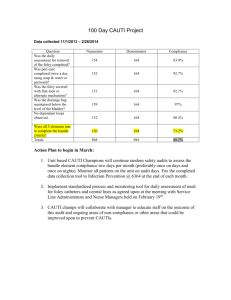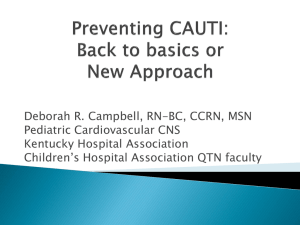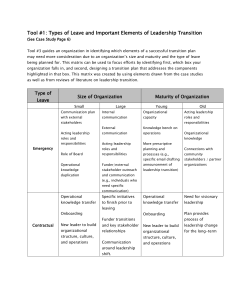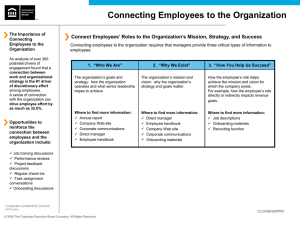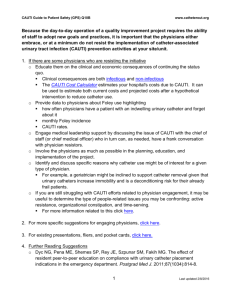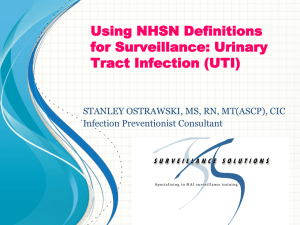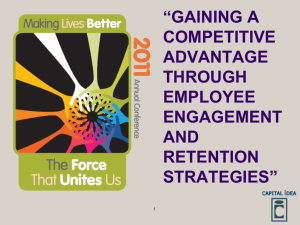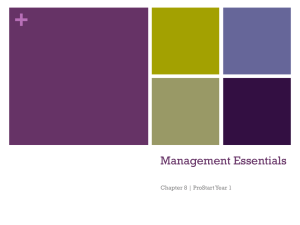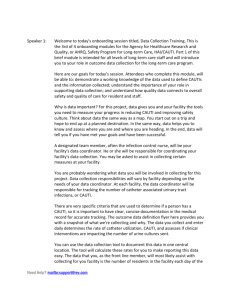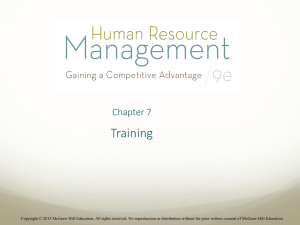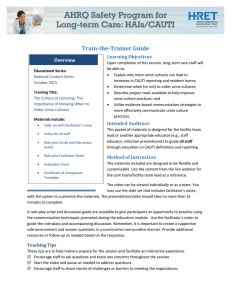AHRQ Safety Program for Long-term Care: HAIs/CAUTI Onboarding
advertisement
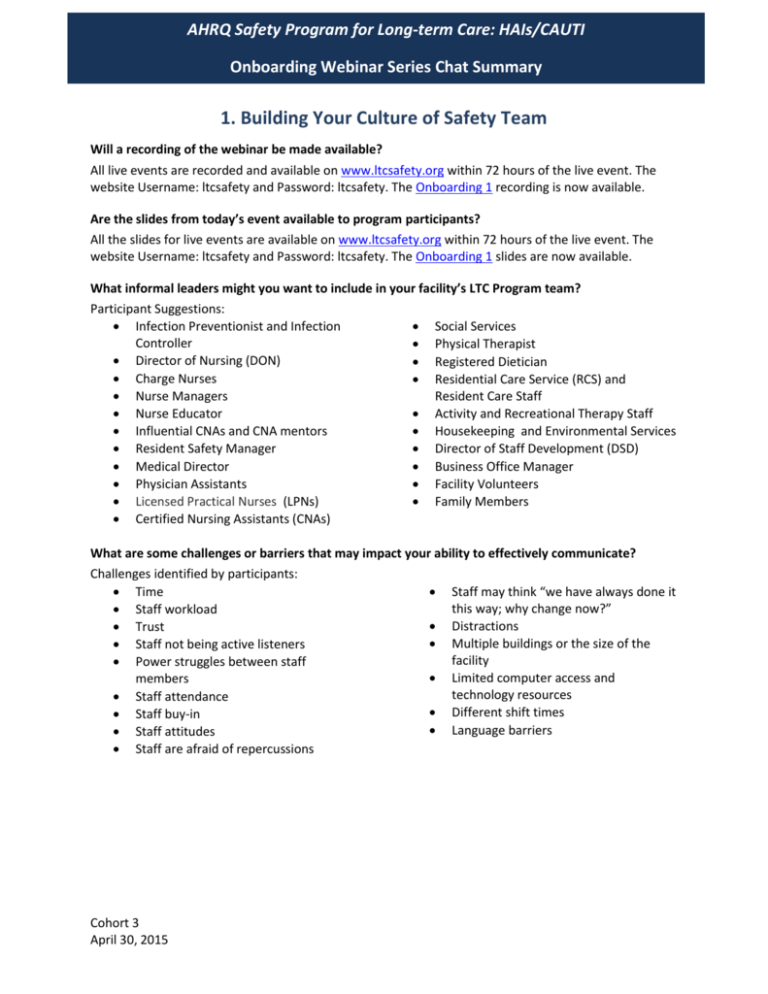
AHRQ Safety Program for Long-term Care: HAIs/CAUTI Onboarding Webinar Series Chat Summary 1. Building Your Culture of Safety Team Will a recording of the webinar be made available? All live events are recorded and available on www.ltcsafety.org within 72 hours of the live event. The website Username: ltcsafety and Password: ltcsafety. The Onboarding 1 recording is now available. Are the slides from today’s event available to program participants? All the slides for live events are available on www.ltcsafety.org within 72 hours of the live event. The website Username: ltcsafety and Password: ltcsafety. The Onboarding 1 slides are now available. What informal leaders might you want to include in your facility’s LTC Program team? Participant Suggestions: Infection Preventionist and Infection Social Services Controller Physical Therapist Director of Nursing (DON) Registered Dietician Charge Nurses Residential Care Service (RCS) and Resident Care Staff Nurse Managers Nurse Educator Activity and Recreational Therapy Staff Influential CNAs and CNA mentors Housekeeping and Environmental Services Resident Safety Manager Director of Staff Development (DSD) Medical Director Business Office Manager Physician Assistants Facility Volunteers Licensed Practical Nurses (LPNs) Family Members Certified Nursing Assistants (CNAs) What are some challenges or barriers that may impact your ability to effectively communicate? Challenges identified by participants: Time Staff may think “we have always done it this way; why change now?” Staff workload Distractions Trust Multiple buildings or the size of the Staff not being active listeners facility Power struggles between staff Limited computer access and members technology resources Staff attendance Different shift times Staff buy-in Language barriers Staff attitudes Staff are afraid of repercussions Cohort 3 April 30, 2015 Is there a current meeting at your facility that already brings the LTC Program team together? Participant Suggestions: Monthly performance improvement Data meeting meeting Joint Commission meeting Quality assurance & performance Leadership meeting Improvement meeting Advisory board Infection control meeting Nurse managers meeting Safety and risk assessment meeting Staff meeting Weekly fall prevention meeting Huddles Weekly clinical meetings Beside rounding End-of-life care meeting Do you have a particular recommendation on specific change theory or conceptual framework to use to change/empower team member’s participation in a change cycle? Today’s presenter, Jen Pettis, recommends Lewin’s Model of Change and Chinn and Kramer’s Integrated Theory and Knowledge Development in Nursing. However, if you are looking for more concrete tools and processes TeamSTEPPS is a great resource; long-term care specific resources and tools are also available on the TeamSTEPPS Long-term Care website. We have a resident who self-catheterizes 3-4 times a day; is that counted as a CAUTI? No. A resident only has a CAUTI if they have an indwelling urinary catheter, meet the CAUTI criteria symptoms and urine tests results, and have no other explanation for their symptoms. An indwelling urinary catheter is a drainage tube inserted into the urinary bladder through the urethra, left in place and connected to a closed collection system. In-and-out catheters, suprapubic catheters and nephrostomy tubes are not included in the NHSN criteria used to identify a CAUTI, so residents with these devices are not considered to have a CAUTI. It's not clear exactly what we are to train the staff with. Each live onboarding webinar is accompanied with training materials designed to educate all facility staff on the topic covered during the live event. The following are included with the downloadable materials: Training guidance 10-15 minute video with an accompanying presentation slide set that can be customized An activity or discussion guide designed for staff to practice new skills Relevant tools and resources Four brief questions for staff to evaluate the material A certificate of completion, to be given to staff after they have completed the onboarding training and its evaluation Will facilities be able to see the results of the skills survey? And what percentage of the facility staff needs to complete the surveys? The results from the initial skills survey will be available the week of June 1. You will be able to access your facility report directly from the CDS platform. Onboarding 3 on Thursday, May 14 will go over data collection and surveys. 2
